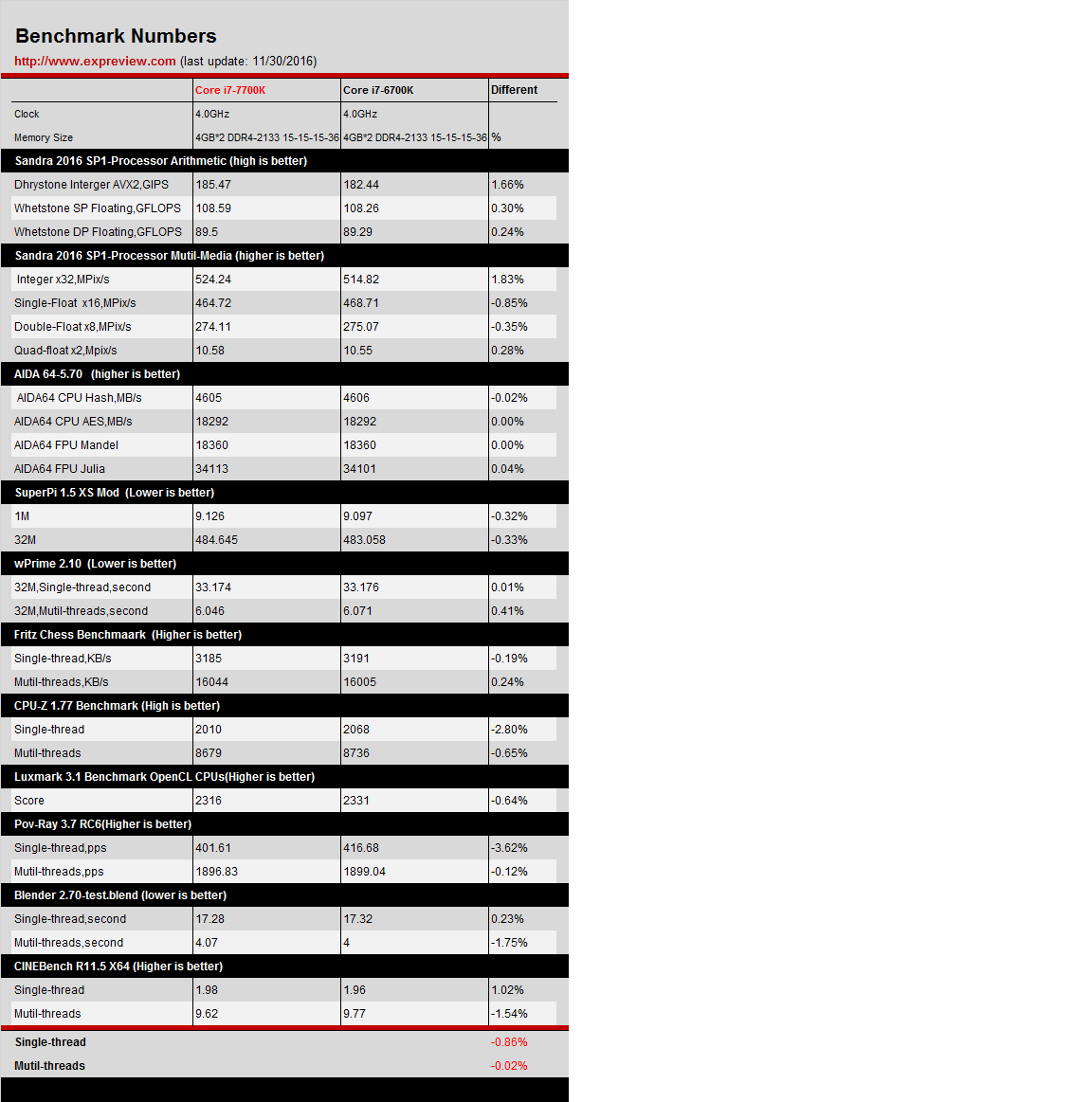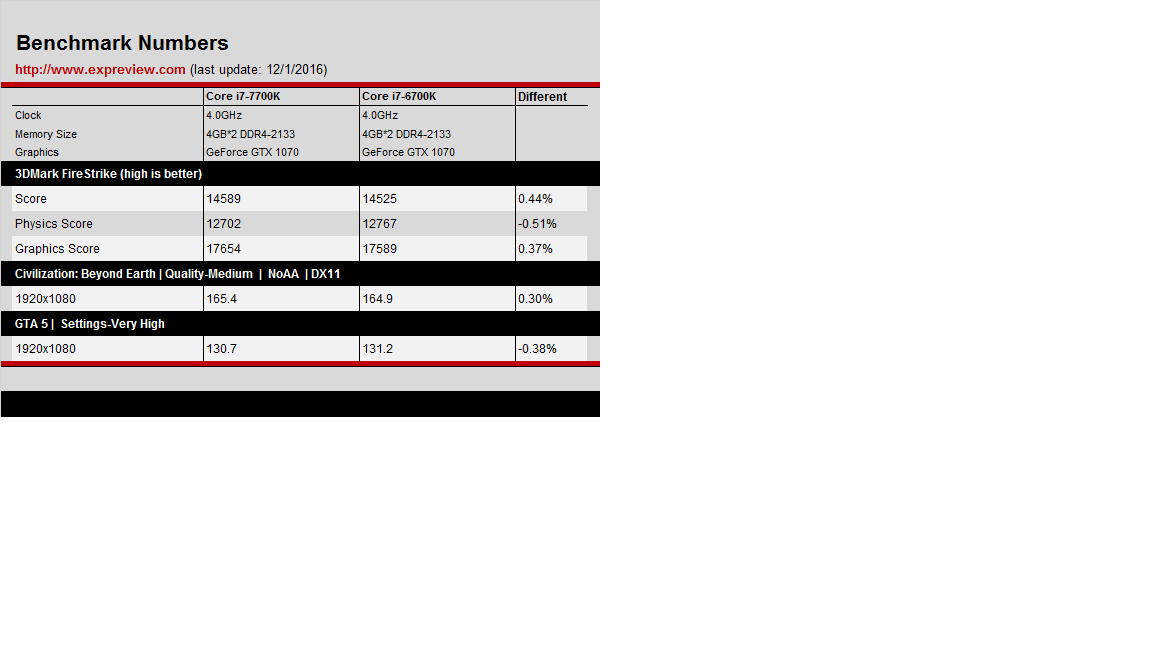HardOCP News
[H] News
- Joined
- Dec 31, 1969
- Messages
- 0
According to the crew over at the Tech Report, a website owned by an AMD employee, supposed leaked Intel Core i7-7700K benchmarks shows higher clock speeds, performance and power usage from Intel's upcoming Kaby Lake processor.
The basic specs of the Core i7-7700K that Tom's reports are about in line with the rumors and leaks we've seen so far. Tom's says the chip has a 4.2 GHz base clock and a 4.5 GHz Turbo speed, and its four cores and eight threads slip into a 95W TDP—up slightly from the Core i7-6700K's 91W figure. That TDP increase is borne out by a small increase in power consumption in the site's testing—141W under a stock-clocked Prime95 Small FFTs load for the Kaby Lake chip, up from 133W for the Core i7-6700K running the same torture test.
The basic specs of the Core i7-7700K that Tom's reports are about in line with the rumors and leaks we've seen so far. Tom's says the chip has a 4.2 GHz base clock and a 4.5 GHz Turbo speed, and its four cores and eight threads slip into a 95W TDP—up slightly from the Core i7-6700K's 91W figure. That TDP increase is borne out by a small increase in power consumption in the site's testing—141W under a stock-clocked Prime95 Small FFTs load for the Kaby Lake chip, up from 133W for the Core i7-6700K running the same torture test.
![[H]ard|Forum](/styles/hardforum/xenforo/logo_dark.png)



